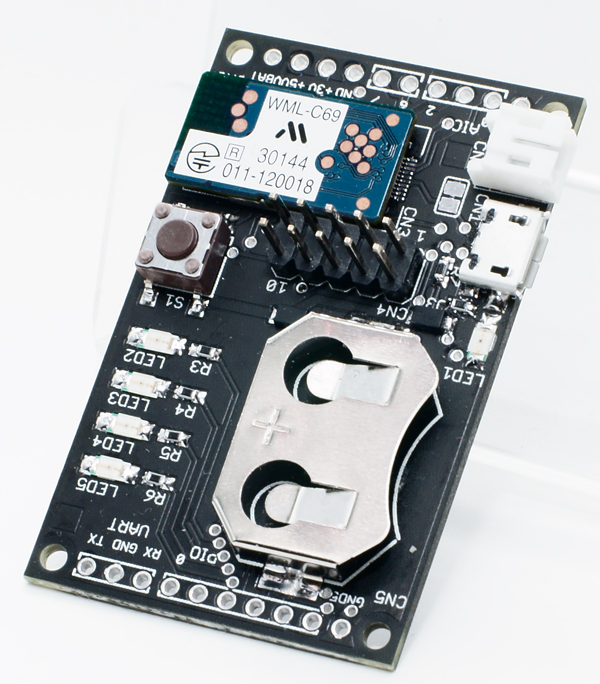Mobile Interaction

Konashi A Physical Computing Toolkit for Smartphones and Tablets
In recent years, along with the advancement of science and technology, technologies have come to be packaged as a “black box,” with their inner workings hidden. These technologies provide many services to us through the ubiquitous terminal by becoming a part of our everyday-environment as elements of products and spaces. Therefore, to create services or systems for the next generations, we need people with a broad knowledge and understanding of both humanities and sciences, and who can use that understanding to create harmony between the two fields.
It is with this background that "GAINER” [Shigeru et al. 2006] had been developed and put on market as a toolkit for physical computing.This toolkit takes from of a small-size computer designed to be extension equipment for modern computer input and output systems. It is also designed to be easy to understand for designers who are not engineers. On the bounty of highly modularized input and output systems, these kinds of toolkits are widely favored among artists, designers and engineers as a tool for realizing their ideas.
However, it seems that the meaning of “computer” in our lives is shifting from desktops and notebooks to smartphones and tablets. With that in mind, we developed “konashi” as a physical computing toolkit tailored for smartphones and tablets.
In this article, we will outline konashi’s architecture, and give a brief progress report on our recent workshop, which utilized “konashi”.
Reo Matsumura
YUKAI Engineering Incorporated
University of Tokyo
Takao Watanabe
University of Tokyo
Yuichi Tadokoro
Tokyo Institute of Technology






